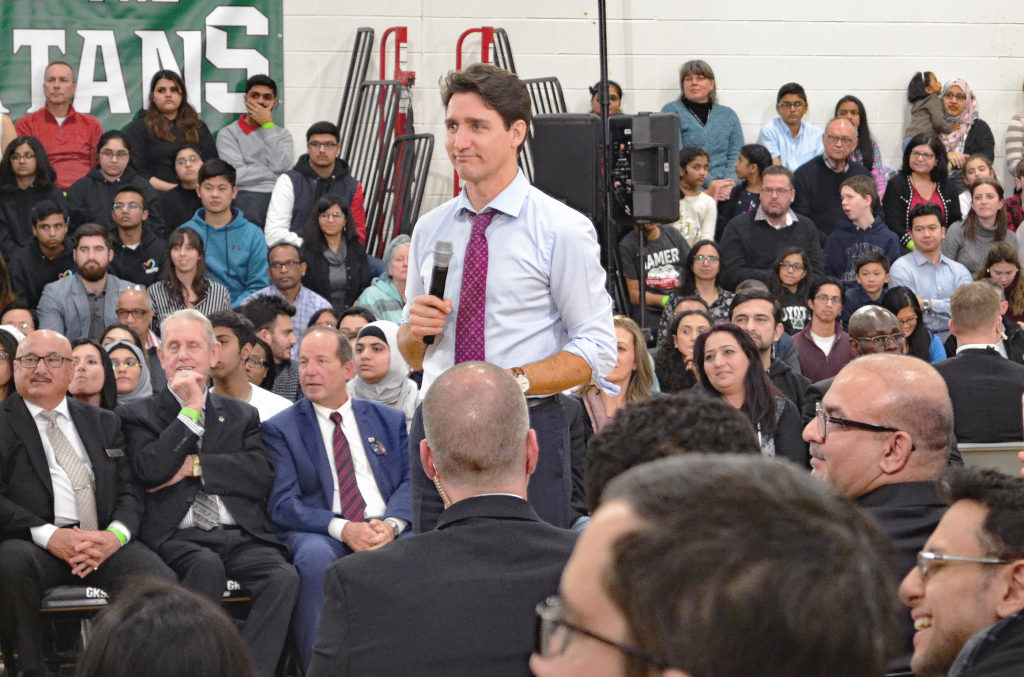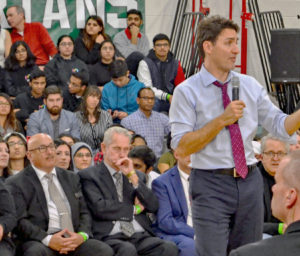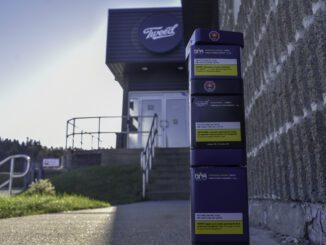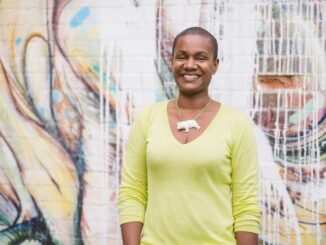With federal election slated for October, prime minister takes to the town hall circuit.
Lisa Hoadley
Kicker
Braving bitter cold, over 1,000 people attended a town hall event held by Prime Minister Justin Trudeau in Milton, Ont., Thursday night.
Standing in the centre of the packed Craig Kielburger Secondary School gymnasium, Trudeau took several questions from members of the audience for an hour and a half.
There were no hecklers or angry questions throughout the evening. A congenial tone was set with the first person selected, a young man from China who began with, “Hi Justin.” The casual salutation raised a quiet laugh from the crowd. A few people looked amusingly shocked, hands over their mouths. Realizing his error, he stammered and nervously re-addressed Trudeau as “prime minister,” but Trudeau was already chuckling along with the crowd.
“No, you can call me Justin.” Trudeau said. “It’s all good.”

Trudeau fielded questions on several topics including pipelines, the General Motors plant shutdown in Oshawa, the current situation with China, immigration and cuts to education. Some of the questions were about provincial issues, not federal, but Trudeau still addressed the concerns.
With three children in the Ontario public school system, Trudeau disagreed with Ontario premiere Doug Ford’s announcement of a possible cancellation of all-day kindergarten. Trudeau’s youngest child is in all-day junior kindergarten in Ottawa. He also does not support the changes Ontario’s conservative government made to the free tuition program.
“I’m hoping that Ontarians, and people right across the country, when faced with governments that are trying to cut the very services that make our country better and stronger, like investing in education, will make very, very clear that it would be a very bad political choice to cut any opportunities for students and to cut education budgets.”
“We need the Chinese authorities to understand that when it comes to the rule of law, Canada, and an awful lot of other countries, will stand firm regardless of the political pressures they put on us.”
One citizen asked how the government is handling the current tension between Canada and China. Trudeau said while he did not want to escalate the situation, he could not ignore the fact that since the detention of Huawei chief financial officer Meng Wanzhou, China was pressuring Canada to release Meng. The arbitrary detention of two Canadians was a pressure tactic to force Canada to ignore its extradition treaty with the United States. Trudeau explained that Canada’s independent judiciary had made the decision to detain the Chinese national and in Canada, he said, politicians do not interfere or control the legal system.
“We need the Chinese authorities to understand that when it comes to the rule of law, Canada, and an awful lot of other countries, will stand firm regardless of the political pressures they put on us,” said Trudeau.

Asked for his vision regarding renewable energy, Trudeau said Canada’s future jobs and communities must be “more efficient, cleaner, more based on renewable energies than on fossil fuels.” Trudeau said while Canada was not going to move away from fossil fuels entirely today or tomorrow, reducing them was a high priority.
“We are as a government investing massively in renewable energies, we are investing in clean technology … we are also moving to put a price on pollution.”
With respect to fossil fuel subsidies, Trudeau said the country was on track to phase them out by 2025. Additionally, all coal-fired plants should be eliminated by 2030.
On the topic of trade, Trudeau proudly stated that Canada is the only G7 country to have a free trade deal with every other one of the G7 countries.
“We are a country that has figured out how
to make diversity a source of strength, not a source of weakness.”
Discussing what he called “aggressive nationalism,” Trudeau admitted the wave of populism spreading around the globe was a significant source of anxiety for his government. He spoke passionately and at length about the unique position Canada holds in the eyes of the world, and the uncommon difficulty in holding together a country with such a geographic diversity of perspective, experience and expectations.
“We are a country that has figured out how to make diversity a source of strength, not a source of weakness. Not only have we managed, we’ve managed to do so in a way that has made us stronger, and more resilient than most countries around the world.”
“We have something pretty darn good going here in Canada and it happens because we are anchored in values of openness, respect, compassion, a willingness to work hard, a desire to be there for each other, things that just about every country aspires to, but we have codified in our charter of rights and freedoms,” said Trudeau.
“We’re just going to apply the rules of our system in a responsible way because that’s what our citizens expect, and quite frankly, that’s what the world has come to expect of Canada.”




Be the first to comment